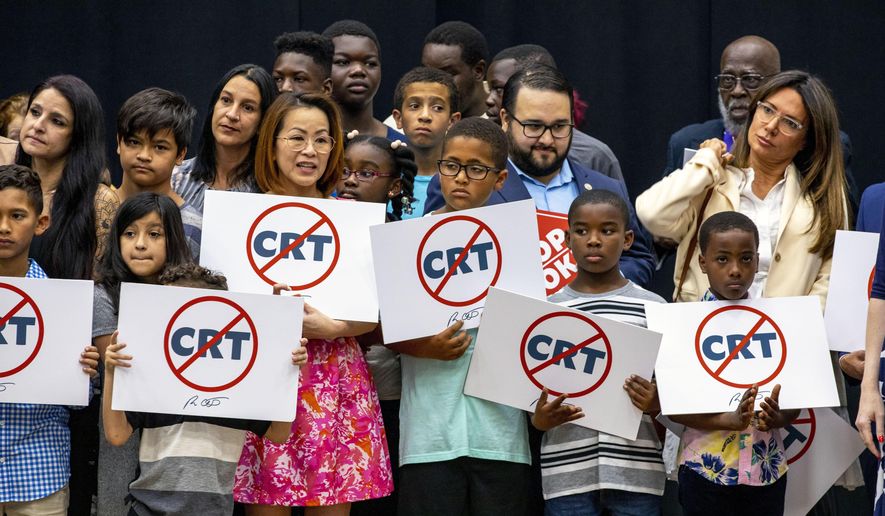A prominent group of historians has released an online resource to promote teaching about racism in classrooms, slamming conservatives who have sought to purge K-12 schools of critical race theory.
The American Historical Association (AHA), founded in 1884 and incorporated by Congress in 1899, said in a press release that it launched the “Teaching with Integrity” resource on its website this week to promote “the principles and practices of historical work in the face of these challenges to educators.”
The association accuses “radical organizations” and “political ideologues” of pressuring state legislatures to pass parental rights laws that censor historical scholarship on “the importance of racism in American history.”
AHA Executive Director James Grossman said lessons about racism are necessary for students to understand present-day tensions.
“To address division, we need to understand its origins and evolution,” Mr. Grossman said in an email. “And it’s foolish to pretend that American society does not suffer from a variety of lines of division right now. Everything has a history, including conflict and discord.”
But Marcus M. Witcher, an assistant history professor at Huntingdon College in Alabama, said lessons on racism must also be free of liberal extremism that rejects America’s founding principles.
“There is no reason that you need CRT to teach about past racial injustice in America,” said Mr. Witcher, co-author of the book “Black Liberation Through the Marketplace.”
The AHA initiative comes as more than a dozen states — most recently including Florida, Mississippi and South Dakota — have passed laws limiting the teaching of “divisive concepts” about gender and race in schools.
Several of the laws ban critical race theory explicitly, while others refer to “The 1619 Project” — a Pulitzer Prize-winning series that New York Times journalists introduced in August 2019 — or to more general racial attitudes that present Whites as victimizers and Blacks as victims.
Developed in graduate and law schools in the 1970s, critical race theory is an analytical tool based on Marxist critical studies. It posits that racism is a foundational element of American society and government and is important in understanding and evaluating U.S. laws, policies and programs.
Critics of the bills have argued that K-12 public schools do not explicitly teach critical race theory. Conservatives have responded that public school teachers teach CRT principles implicitly, after learning them in college education classes and professional workshops.
On the new AHA web resource, several “Historians Speak” videos posted this week take sides against such legislation.
“The great irony is that the bills that are supposed in theory to prevent divisiveness are the ones that are actually designed to promote it,” Hasan Kwame Jeffries, an associate history professor at Ohio State University, says in one video.
Some historians this week endorsed the AHA’s effort to provide guidelines for teaching racism in America’s schools.
“Painful history is essential history,” said Stephen Aron, a retired history professor and president of the Autry Museum of the American West.
Edward L. Ayers, a professor of history at the University of Richmond, added that the website’s “eloquent videos” could help public school teachers and students better understand present-day racial divisions.
“They show that those who spend their lives teaching the American past do so out of dedication to their communities and their students, out of devotion to America’s highest ideals,” Mr. Ayers said.
But Tamra Farah, a senior director at the conservative Moms for America, said the AHA website misrepresents groups like her own that have endorsed the parental rights laws.
“The American Historical Society’s assertion that parents and legislative bodies are somehow ignoring history by seeking to block the left’s tenants found in critical race theory is gaslighting at its finest,” Ms. Farah said. “Americans are not afraid of telling the good, the bad, and the ugly in our history, but it must be an accurate telling.”
• Sean Salai can be reached at ssalai@washingtontimes.com.




Please read our comment policy before commenting.